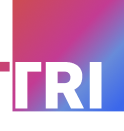The Bright Future of Digital Marketing Strategies
- TRIdigital

- May 9, 2023
- 7 min read
Updated: Jun 23, 2025
The future of digital marketing is changing fast, and businesses must keep up to stay ahead. AI, automation, personalization, MSP networks, and SEO are shaping how companies reach customers. TRIdigital Marketing leads the way with smart strategies that help businesses grow. AI makes ads smarter, automation saves time, and personalization makes marketing more engaging. MSP networks connect businesses, while SEO helps them rank higher online. To stay ahead, companies need the right tools. Explore the best MSP marketing tools and strategies to boost your business in this fast-moving digital world.
The Rapid Evolution of Digital Marketing
The future of digital marketing is changing fast because of new technology. AI, automation, and data help businesses reach the right people at the right time. In other words, marketing is now smarter and more personal. Companies use tools to track customer behavior, so they know what people want. Also, social media and search engines keep evolving, which means businesses must adapt quickly.
MSP networks help companies stay ahead by sharing the latest marketing trends and tools. Inbound marketing MSP strategies focus on attracting customers instead of chasing them. After that, businesses can build trust, grow their audience, and boost sales.
AI and Automation in the Future of Digital Marketing

AI Improves Content
It helps businesses create better content by understanding what people like. It looks at data to find trends. In other words, AI makes marketing messages more personal and more effective. So, businesses can reach the right audience at the right time.
How AI Personalized Marketing
AI helps businesses send the right message to the right people. It studies customer behavior to predict what they need. After that, companies can use this information to create better ads.
Smart Product Suggestions – AI suggests products based on what people searched for before.
AI-Powered Emails – AI sends emails with content that customers actually want.
Chatbots Help Sell More
Chatbots answer customer questions fast, so businesses save time. Also, they keep customers engaged by offering instant replies. In addition, chatbots help guide people to the right products, making shopping easier.
Machine Learning Boosts Growth
Machine learning studies patterns to improve marketing. It helps businesses understand what works and what doesn’t. So, companies can make smarter decisions.
AI-Powered Ads – AI shows products people are most likely to buy.
Better MSP Content Marketing – AI tools help businesses improve MSP content marketing strategies.
AI Shapes the Future
The future of digital marketing depends on AI and automation. These tools help businesses work faster, save money, and reach more people. Above all, AI makes marketing more personal, so customers stay interested and loyal.
Hyper-Personalization in Marketing
Why Personalization Matters
People don’t like ads that feel random. They only pay attention when something interests them. So, businesses must send messages that match what customers like. In other words, personalization helps companies sell more.
Personalized ads show people things they actually want, so they are more likely to buy.
Special emails make customers feel important, so they stay loyal to a brand.
AI Tools Make Marketing Smarter
AI helps businesses understand what customers like. It studies what people click on and buy. After that, it suggests better content. Also, these tools improve MSP marketing tools, making them more useful.
SEO Works Better with Personalization
Websites rank higher on search engines when they give people what they need. So, businesses using MSP SEO must focus on customer interests. In addition, this helps attract more visitors.
SEO tools find out what topics people search for the most.
Websites with helpful, personal content keep people reading longer.
AI Can Predict What Customers Want
AI looks at past behavior to guess what people will buy next. For instance, if someone searches for running shoes, AI may suggest sportswear next. Also, businesses can use this to create better ads.
The Future is Personal
The future of digital marketing is all about making customers feel special. Above all, businesses that personalize content will grow faster. Therefore, using AI and MSP content marketing helps build trust and keeps customers coming back.
AI makes shopping and ads feel more personal.
Personalized marketing helps businesses stand out and keep customers happy.
The Rise of Voice and Visual Search

How Voice Search Changes SEO
More people are using voice assistants like Siri and Alexa to search online. So, businesses must change how they write content. In other words, they need to use natural, conversational words to match how people talk.
Long-Tail Keywords Work Best – People ask full questions when speaking, so using longer phrases helps.
Fast Answers Win – Search engines prefer short, clear answers for voice searches.
Local Searches Are Growing – Many people ask for nearby services, so businesses must focus on local keywords.
Why Visual Search is Growing
People love searching with pictures instead of words. For instance, they can take a photo of a product and find it online. So, businesses must make their images easy to find. Also, this helps the MSP marketing agency grow by attracting more customers.
Optimizing for Better Rankings
Search engines prefer websites that load fast and work well on all devices. In addition, businesses must use clear, helpful content. So, making websites easy to read and mobile-friendly is key. After that, companies can track search trends to stay ahead.
How Businesses Should Adapt
The future of digital marketing depends on voice and visual search. Above all, businesses must change their SEO strategies to stay visible.
Use Clear, Simple Words – Voice searches prefer easy-to-understand content.
Optimize Images for Search – Adding alt text and descriptions helps images rank higher.
Focus on Mobile Users – Most voice and visual searches happen on phones, so websites must be mobile-friendly.
The Role of Data in the Future of Digital Marketing

How Data Improves Marketing
Data helps businesses understand what customers like. So, companies use it to create better ads, emails, and website content. In other words, data helps businesses send the right message at the right time. Also, when companies know what people want, they can make smarter choices and sell more. After that, they can keep improving their marketing with the help of an experienced MSP Marketing company that understands data-driven strategies.
Why Predictive Analytics Matters
Predictive analytics helps businesses guess what customers will do next. It looks at past behavior and finds patterns. For instance, if someone buys running shoes, they might need sportswear next. So, businesses use this information to plan better marketing. In addition, this helps them stay ahead of their competitors.
Customer Insights Boost MSP Marketing
Customer data makes MSP marketing more personal. For instance, businesses can see which products are popular and which ads work best. Also, data shows what people search for, helping businesses create better content. After that, companies can use this information to improve their marketing strategies. Above all, businesses that understand their customers can serve them better.
SEO Services Help Businesses Grow
Search engines rank websites higher when they use data to improve content. That’s why SEO services in Dallas, TX focus on data-driven strategies. For instance, they track keywords, analyze website traffic, and study what people search for most. So, businesses using these services get more visitors, better rankings, and higher sales. After that, they can keep improving based on real results.
Video Marketing in the Future of Digital Marketing
Why Video Content is Growing
People love watching videos because they are fun and easy to understand. So, businesses now use videos to explain their products and services. In other words, videos help companies connect with more customers in less time. Also, short videos keep people interested longer than long articles.
How Video Helps Businesses
Videos make it easier for businesses to reach new customers. For instance, they can show how a product works instead of just describing it. Also, videos get shared more on social media, so they help businesses grow faster. After that, companies can use videos to answer common customer questions.
Short-Form Videos Are Taking Over
People love short videos because they are quick and fun to watch. So, businesses must create short, engaging content to stay relevant. Also, search engines like Google rank websites better when they include videos. That’s why MSP SEO now focuses on video content to improve search rankings.
People Love Quick Content – Short videos keep attention better than long ones.
More Engagement – More engagement boosts MSP sales since videos influence customer buying decisions effectively.
SEO Loves Videos – Websites with videos rank higher in search results.
Social Media and Video Growth
Social media is now all about video content. So, businesses must use YouTube, TikTok, and Instagram Reels to stay ahead. After that, they can reach a larger audience and grow their brand faster.
The Future of Digital Marketing is Video
The future of digital marketing will be led by video content. Above all, businesses that create engaging videos will stand out. Therefore, they must start using videos now to attract more customers and stay ahead of competitors.
Key Takeaway
Companies need new strategies to stay ahead. Also, using the right tools, like MSP marketing tools, helps businesses grow. After that, they can reach more customers and increase sales.
TRIdigital Marketing helps businesses adapt to these changes. So, companies can improve their websites with SEO services in Dallas, TX. Above all, businesses ready to grow should contact us today and start winning online.
FAQs
What is the future of digital marketing?
The future of digital marketing is all about AI, automation, personalization, and video content. Businesses must adapt to these trends to stay ahead. Also, using the right tools like MSP marketing tools helps companies grow.
Why is AI important in digital marketing?
AI helps businesses understand customer behavior and create better ads. In other words, it makes marketing smarter and more personal. So, AI-powered tools improve customer engagement and increase sales.
How does video marketing impact digital marketing?
Video content grabs attention faster than text. Also, search engines rank websites higher when they use videos. After that, businesses get more engagement and higher conversion rates.
What role does voice search play in marketing?
More people now use voice assistants like Siri and Alexa to search online. So, businesses must use natural, conversational words in their content. Above all, optimizing for voice search improves website rankings.
How does visual search help businesses?
Visual search lets users find products using images instead of text. For instance, someone can take a picture of a product and search for it online. So, businesses must optimize their images to stay competitive.



